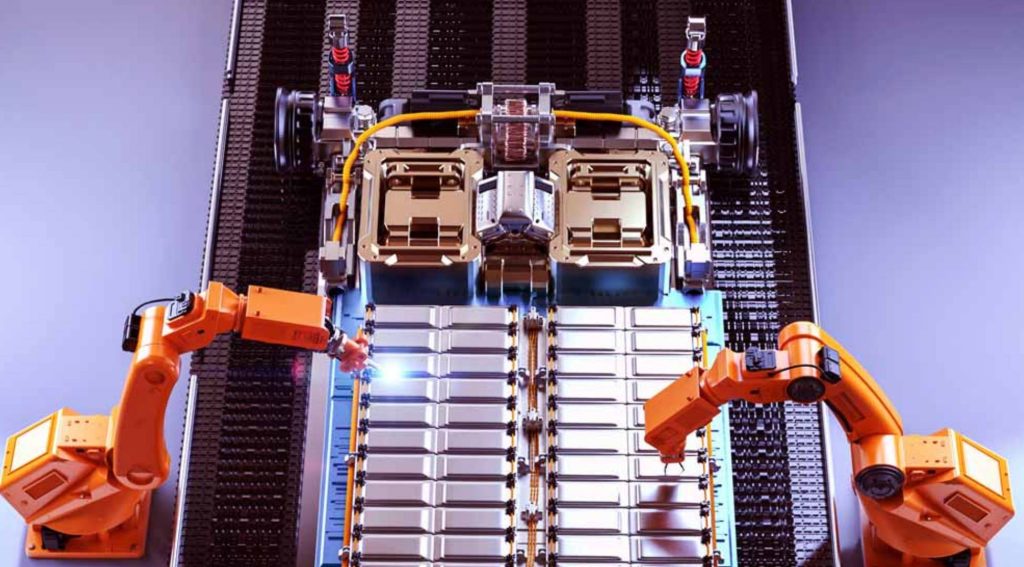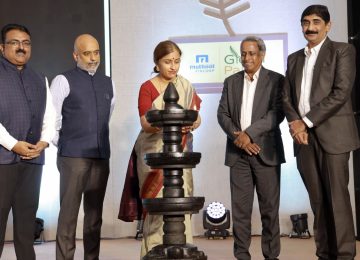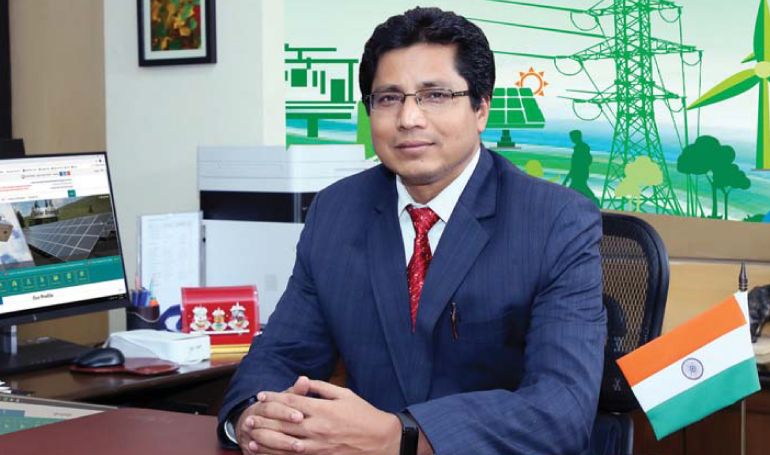India has announced a new scheme to promote the domestic manufacturing of electric passenger cars, a move that aligns with the nation’s ambitious target of achieving net-zero emissions by 2070 and fostering sustainable mobility.
The Ministry of Heavy Industries (MHI) has issued comprehensive guidelines for the initiative, which aims to attract global EV manufacturers and boost local production.
Under the “Scheme to Promote Manufacturing of Electric Passenger Cars in India” (SPMEPCI), approved applicants will be allowed to import completely built-in units (CBUs) of e-4W at a reduced customs duty of 15% for five years.
The concession comes with a commitment for manufacturers to make a minimum investment of Rs. 4,150 crore (equivalent to approximately $500 million) in India. The scheme is designed to create employment opportunities and further the “Make in India” initiative.
Snapshot:
• Total duty foregone: Rs. 6,484 crore or investment made under the scheme.
• Minimum investment: Rs. 4,150 crore (equivalent to USD 500 million).
• Commencement of operations:: Set up a manufacturing facility and commence operations for e-4W within 3 years.
• Maximum investment: No limit.
• Domestic Value Addition (DVA) criteria: Minimum 25% DVA within 3 years, minimum 50% within 5 years from approval letter issuance.
Key details of the scheme:
Total duty foregone: Limited to the lower of Rs. 6,484 crore per applicant or the actual investment made under the scheme.
Minimum investment: Rs. 4,150 crore (approximately $500 million).
Commencement of operations: Manufacturing facilities for e-4W must be set up and commence operations within 3 years of receiving the approval letter.
Maximum investment: No upper limit.
Domestic Value Addition (DVA) criteria: A minimum of 25% DVA must be achieved within 3 years, increasing to a minimum of 50% within 5 years from the date of the approval letter.
Import limits: Approved applicants can import a maximum of 8,000 e-4W CBUs per year at the reduced customs duty, with unutilized annual import limits allowed to be carried over.
Eligible investments: Investments should be directed towards domestic manufacturing, with expenditure on new plants, machinery, equipment, engineering research and development (ER&D), and charging infrastructure (up to 5% of committed investment) being considered eligible.
DVA certification: Assessment and certification of DVA for eligible products will be carried out by testing agencies approved by the MHI, following the standard operating procedure (SOP) established under India’s production-linked incentive (PLI) scheme for automobile and auto components.
Applicant commitment: Applicants must commit to setting up manufacturing facilities, achieving DVA targets, and complying with all scheme conditions, secured by a bank guarantee from a scheduled commercial bank in India.
Application process: The application window will be open for 120 days, with the MHI retaining the right to reopen it until March 15, 2026. A non-refundable application fee of Rs. 500,000/- is required.
HD Kumaraswamy, Union Minister for Heavy Industries, said, “Under the visionary leadership of Hon’ble Prime Minister Shri Narendra Modi, the Ministry of Heavy Industries has approved a forward-looking scheme to promote the domestic manufacture of passenger cars, with a special focus on electric vehicles. This landmark initiative aligns with India’s national goals of achieving net-zero by 2070, fostering sustainable mobility, driving economic growth, and reducing environmental impact. It is designed to firmly establish India as a premier global destination for automotive manufacturing and innovation.
Our take:
This policy framework, with its strategic incentives and stringent requirements, is set to position India as a global hub for EV manufacturing, attracting significant investments, creating employment opportunities, and accelerating the nation’s transition towards a greener and more sustainable transport future.












